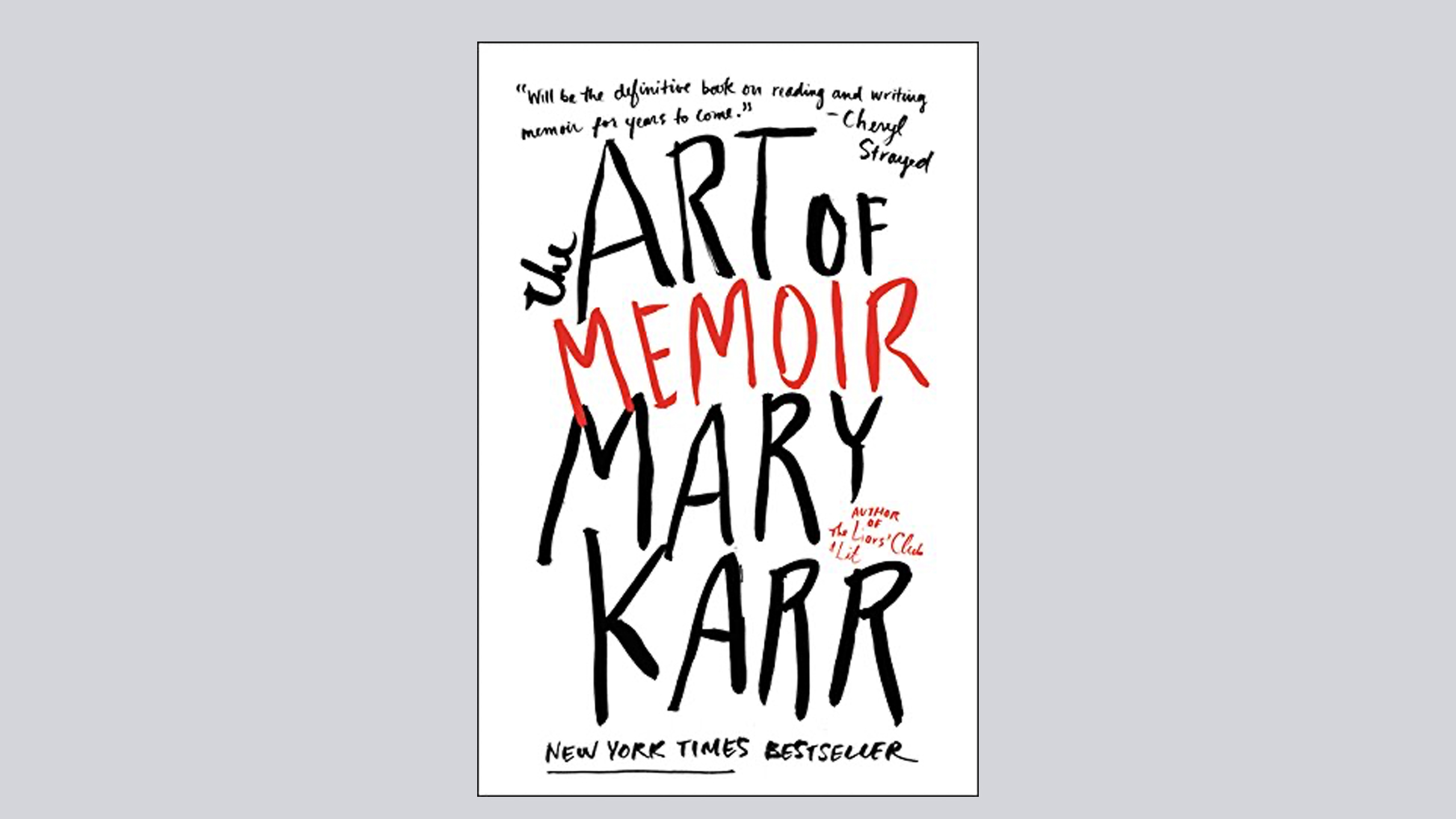The way Mike Birbiglia talks about life is like a knife through butter: clear, concise, straight to the point. The stand up comic is a New York Times bestselling author, writer, director, actor, radio show contributor, podcast host, I’ll stop listing things because pretty much anything you can think of, he does it. His latest memoir The New One, based off of his hit Broadway show, explores the trials and tribulations of his reluctant coming-to-terms with fatherhood. Woven through poems penned by his wife, Birbiglia writes of a love affair with pizza, managing work and family, and the unearthed joys of parenthood, something he never really expected to find. His work at times, and especially in this book, is sucked right from his life with exquisite detail and precision. So it was only fitting that we had the chance to discuss the art of the memoir and to talk through some of his favorites that have influenced his work.

Daniel Modlin: I couldn’t stop laughing while reading your book. And I know people say that all the time, but you have a really strong voice in prose, too. Reading this book felt like listening to you on This American Life.
Mike Birbiglia: Thanks, yeah, someone who does the same really well is Bess Kalb who just wrote Nobody Will Tell You This But Me: A True (As Told to Me) Story. It’s a true story as told to the author from the perspective of her grandmother, who passed away. Really, I think you can tell a TV writer wrote it, in terms of how scenic the writing is. And there’s this great scene where her mother as a young adult is talking to her grandmother about the guy she’s seeing and she tells her that she’s planning on going to Maine for Christmas to meet the guy’s family. The grandma starts wondering about the public school system in Maine and the mom tells her, “We don’t even live together yet” and the grandma says “You will,” and so the mom asks, “How do you know?” And the grandmother says, “Because it’s the middle of December and you’re going to Maine.”

It’s just such a great movie line and you can really see the scene, hear even the tone she says it in, see her face, from just that little bit of dialogue. It’s made for Meryl Streep. The book is just so well done and a great example of a young writer just absolutely exploding the genre of the memoir. The memoir, and retelling memories is already this flawed neurological system. You want to believe the author the whole time but you’re wondering if they’re telling you the truth. In Nobody Will Tell You This, you kind of know it’s not true, but also, you’re drawn into believing her every step of the way because in some ways, it kind of is true.
DM: Reading your book, I believed you the whole time, until one of your wife’s poems came in, and I thought, is he really telling the truth? The poems interspersed throughout were like a reminder to doubt you, but also, strangely made me trust you more.
MB: A lot of people ask David Sedaris how many of his stories are true, and I’ve heard him say in interviews “True enough for you.” I was talking on my new podcast about this story of when I first found out I had cancer, and Ira Glass helped me realize that I was telling it wrong the whole time.
When I was 19, the doctor didn’t tell me I had cancer, my mom actually did. And it’s really interesting because listening to the podcast episode back, I tell the story in two completely different ways — one from memory and one while conjuring memories as I tell it. I think that really gets down to it — the idea that while you’re reading, writing, or telling a story, you’re imagining something as it’s happened, but really it’s just, no matter what, an approximation of that experience. And so I think The New One is a he said/she said, or really, a he said/she poetry.
DM: Do you have a favorite book by Sedaris?
MB: Me Talk Pretty One Day. I was in my early twenties and it was a massive moment for me when I was reading it because I was laughing so hard on the subway, and people around me must’ve thought I was a little crazy. I was living with my girlfriend at the time, and we were nearing the end of our relationship without realizing it. We were criticizing each other about things that aren’t even real like “We have to visit your parents again, really?” You know? And so I told her, “I read this book and I think I want to write essays like David Sedaris,” and I just remember her saying, “That’s the stupidest idea I’ve ever heard.”

DM: It’s interesting you picked Sedaris because he’s so good at taking something dark and making it funny. You’re laughing and you’re also thinking, “I shouldn’t be laughing,” and I feel like you do the same thing, with cancer, sleepwalking, and at points in this book, even touching on reluctant and absent dads.
MB: Yeah, I mean my aesthetic of comedy is writing from a place of pain and then trying to do a Houdini trick underwater of freeing myself, of making something that isn’t funny into something that is funny so we can have a conversation about it.
I think a great example of someone who does this well is Zadie Smith, especially in Feel Free. The way she alternates between the witty and the deeply profound is just flawless. There are some people like Smith who are just so good that you borderline give up on writing your own book because you’re just like “Well, this is definitely not going to be that.” And I think that’s true in all art forms. You watch Richard Pryor and Chris Rock and Jerry Seinfeld and it's almost discouraging because you think, "I’m never going to be as good as that." It took me seven years into standup to realize I’m not going to be that, but I’m going to be this, and that’s okay.

DM: The book reads quickly but it’s fun and it feels like the reader is in the room with you at times, a fly on the wall, watching you and your wife have these sometimes intense conversations. You say in the book, “A solid chunk of my life is spent living, and another hearty slice is spent on stage telling jokes about living.”
MB: A big influence for me is Mary Karr. I’m recommending two of her books, Liar’s Club and The Art of Memoir. Liar’s Club is just so evocative, as is all of her writing. Every sentence is like you can smell and taste and feel every image that’s right on the page. Liar’s Club was my first introduction to her voice and so it’s my favorite. It’s like how everyone’s favorite Wes Anderson movie is the first one they saw. She is just so masterful because she is able to balance tragedy and humor and humanity and puts this real product out onto the page.

The Art of Memoir, I think, is the best encapsulation of how and why to write a memoir and I think if people are interested in writing their own memoir, really, look no further.

DM: Do you think it’s easier to write a memoir, you know, as Mike Birbiglia, as opposed to just someone out there who wants to give it a shot?
MB: Something that was really important to me about The New One was that I wanted it to live on its own. People might know me from Trainwreck or Orange is the New Black or even my stand up but I wanted the book to be its own thing so that anyone could pick it up and it would still be funny to them.
And so if you look at the cover, it’s the world’s smallest author photo. There’s just a little drawing of me in between a submarine toy and a bear because I wanted the book to stand on its own.
DM: Was writing this similar to writing stand up? I mean, a lot of your stand up kind of is memoir, right?
MB: Yeah, so I think about a quote that [Margaret] Atwood said in an interview which was, “When you hand people a book, you’re really handing them a piece of sheet music.” The instrument is their mind and you can’t control how they play it. And so you have to be really precise but also, let go because at the end of the day, you can’t have the experience with them, you can just try to set it up for them as best as possible.
Interview edited for clarity.






